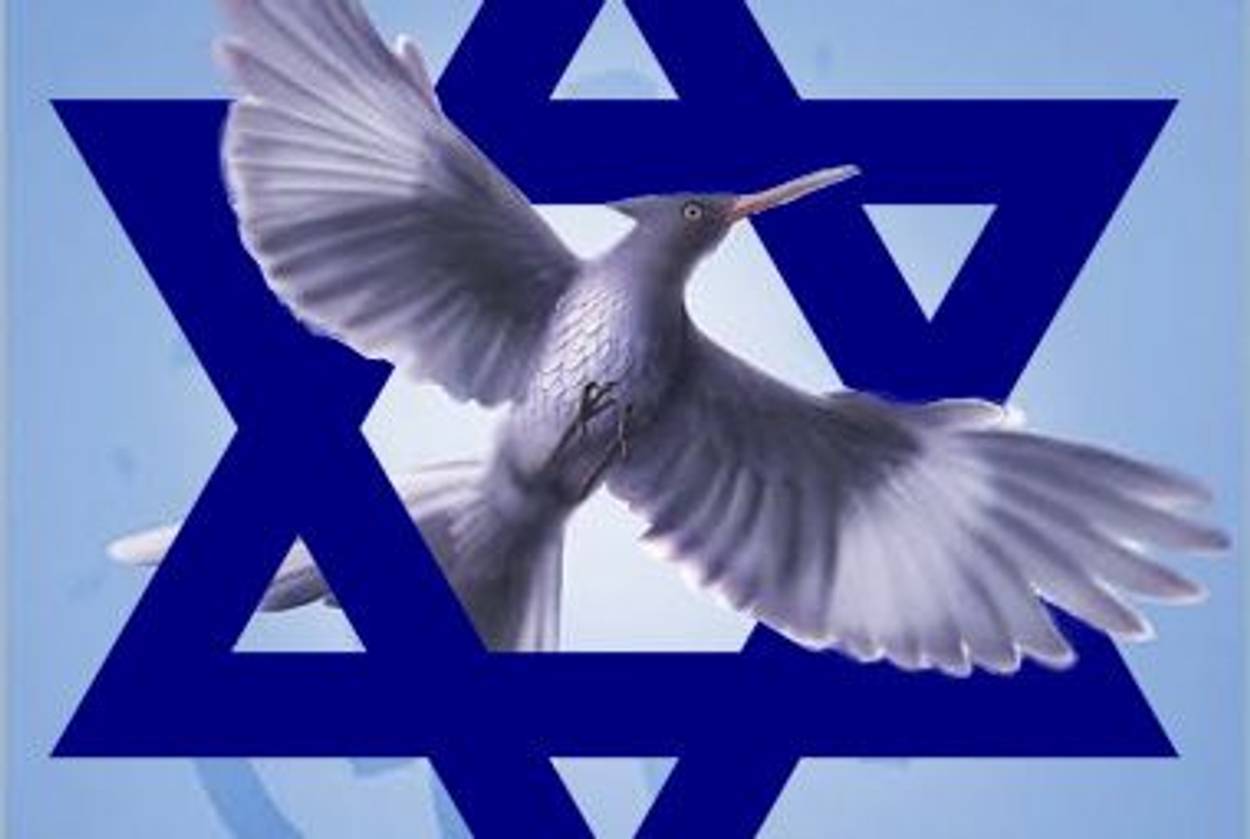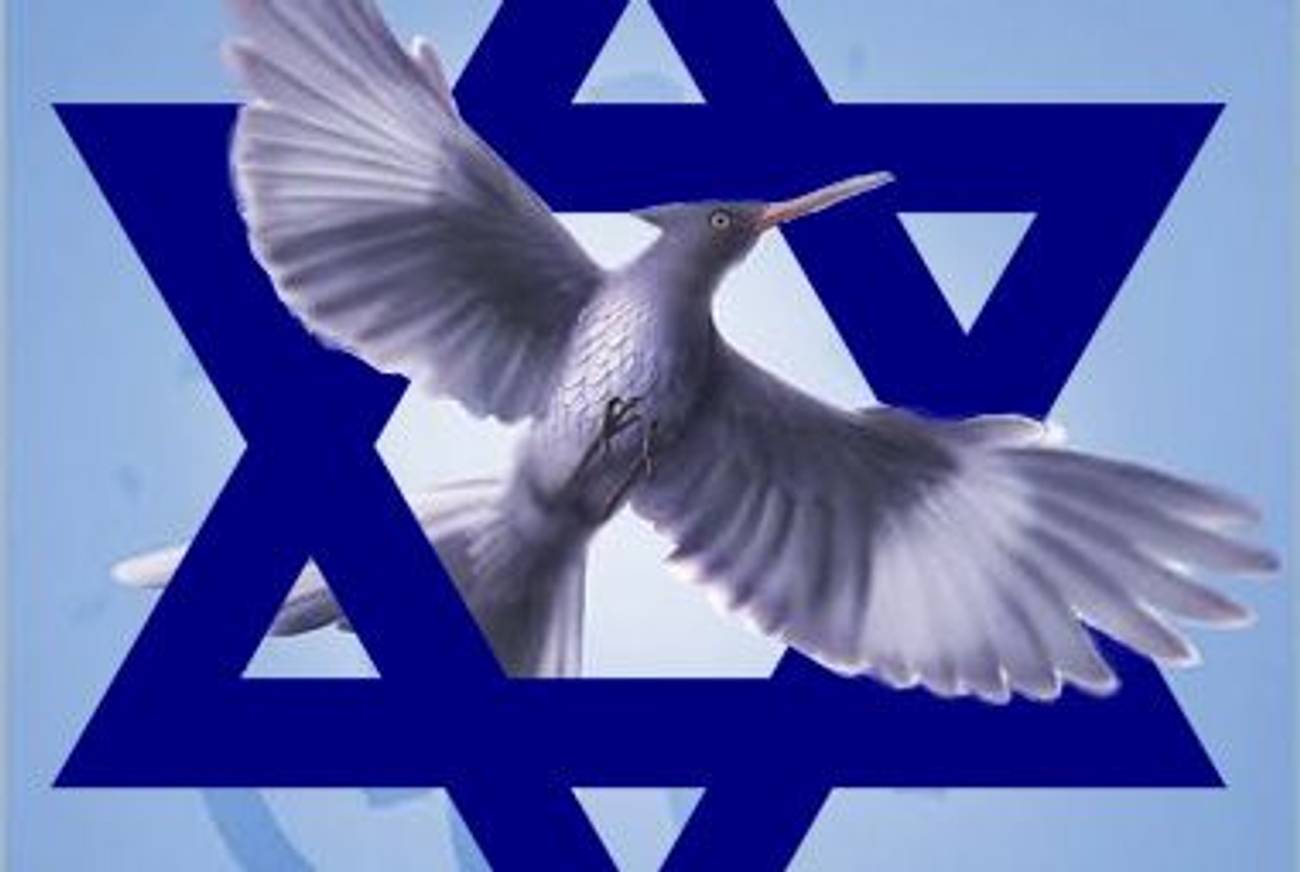Hunger Games
How a current best-seller gets Yom Kippur shockingly right




A couple of weeks ago, I griped about Eat Pray Love, a book I felt offered a facile (and goyish) portrait of spiritual awakening. Thankfully, a current bestseller, Suzanne Collins’ Mockingjay, is giving readers a more nuanced, challenging, and thought-provoking view of what it means to live a moral life. What’s more, the issues explored in this book resonate deeply at Yom Kippur. And guess what! It’s a young adult novel.
Mockingjay is the final book in a trilogy. The first two books, The Hunger Games and Catching Fire, introduced readers to a dystopian society in which children are selected as contestants in a terrible reality show, thrown into a giant arena, and forced to battle to the death before zillions of hidden and not-so-hidden cameras. Those cameras are controlled by the Capitol, a dictatorship that rules what once was North America. The series’ heroine, Katniss, volunteers for the Hunger Games to save her little sister, whose name has been drawn as one of the two “tributes” from their district. Katniss is groomed, costumed, given a backstory for the audience to follow, and then set loose to kill or be killed. It’s 1984-meets-Survivor-meets-Project Runway-meets-Spartacus.
While Eat Pray Love was the story of one person’s entirely inward-looking quest for happiness, The Hunger Games trilogy is about how one person, under the grimmest circumstances imaginable, can help others. Throughout the trilogy, but especially in Mockingjay, Katniss has to face the fact that people have died because of her, both directly—killed in the arena—and indirectly—killed because she slowly becomes a symbol of rebellion against the Capitol’s tyranny. Her knowledge of her own culpability and responsibility weighs heavily on her. You don’t have to be a revolutionary teen symbol in a flame-covered suit holding a bow and arrow to understand those feelings, especially at this time of year. This time of year is here to remind us that we’re all connected (kol yisrael areivim zeh la-zeh—all of us are responsible for one another) and that we’re all guilty of something.
And we couldn’t have asked for a better heroine than Katniss to help us realize that. She is a flawed heroine, clearly damaged after her experiences in the Games. To the dismay of some readers, in Mockingjay she isn’t a butt-kicking superhero. She’s a person—sometimes passive, sometimes fearful, sometimes full of self-doubt—like all of us. She opts to face the most unsavory aspects of herself. She accepts the introspection, responsibility, and regret we ourselves try to face on Yom Kippur. She takes off her costume, as we, too, must strip away the layers of defensiveness and guardedness that keep us from being the people we should be.
Another constant theme in all three books is how hard it is to retain our humanity in challenging situations. What sins are permissible for the greater good? In Katniss’ world, as in our own, there’s no bright line between good and evil. People do good things for bad reasons and bad things for good reasons. We’ve all sinned; the question is what we do thereafter.
The answer both Judaism and Mockingjay offer is introspection. No one is as hard on Katniss as she is on herself. Unlike Liz in Eat Pray Love, who’s all too eager to forgive herself, Katniss doesn’t let herself off easily. But being too self-flagellating can also be paralyzing. We need to be people of action, not just reflection. Self-loathing can keep us from the important work of tikkun olam. Katniss needs to come to terms with her own sins and take responsibility for them without letting them consume her. (As I pointed out last week, the Hebrew word for sin is literally “a missing of the mark”—how ironic that Katniss is an archer.)
But being forgiving, of oneself and of others, doesn’t mean having no standards. Like Katniss, we need to listen for a still, small voice amid the din. That tiny voice could be our own courage, or it could be the awareness of someone else’s humanity. We need to have the presence of mind to forgive and the strength of character to trust again.
And, like Katniss, we need to learn how to be at peace with the past. As parents, we fall down a lot, we miss the mark, we lose our tempers, we lie to our children, we aren’t fully present when they tell us their stories. None of us is perfect. But we try to do better, and to do better we must first overcome the burdens of our past failings.
Thank God we have a heroine like Katniss, then, who, like parents everywhere, walks a path that is often lonely, a path that acknowledges nuance and realizes that what’s right doesn’t always bring applause and congratulations. But that’s what true heroism is: doing something just because it’s right. Let us keep that in mind as we sit in services this year.
Gmar chatima tova—may you be sealed in the book of life.
Marjorie Ingall is a former columnist for Tablet, the author of Mamaleh Knows Best, and a frequent contributor to the New York Times Book Review.